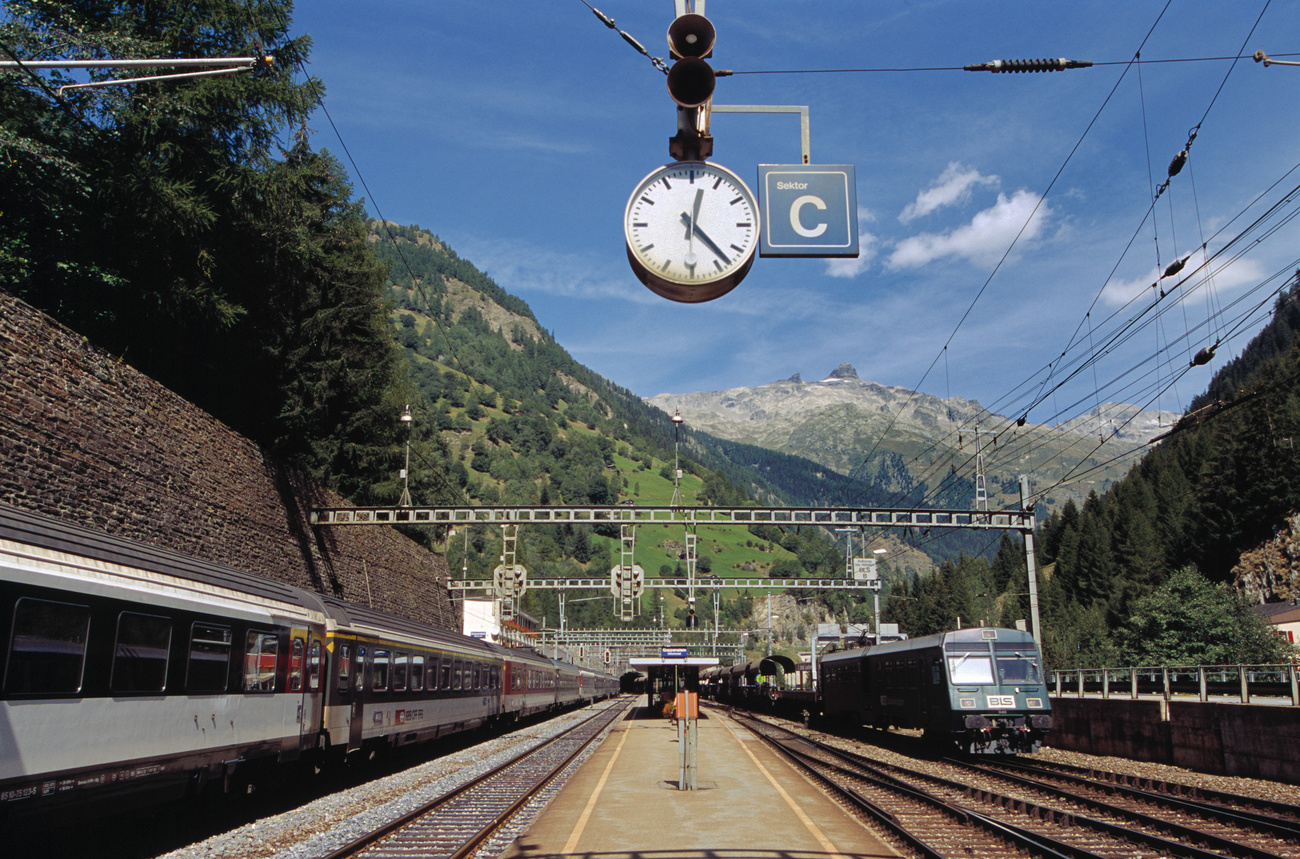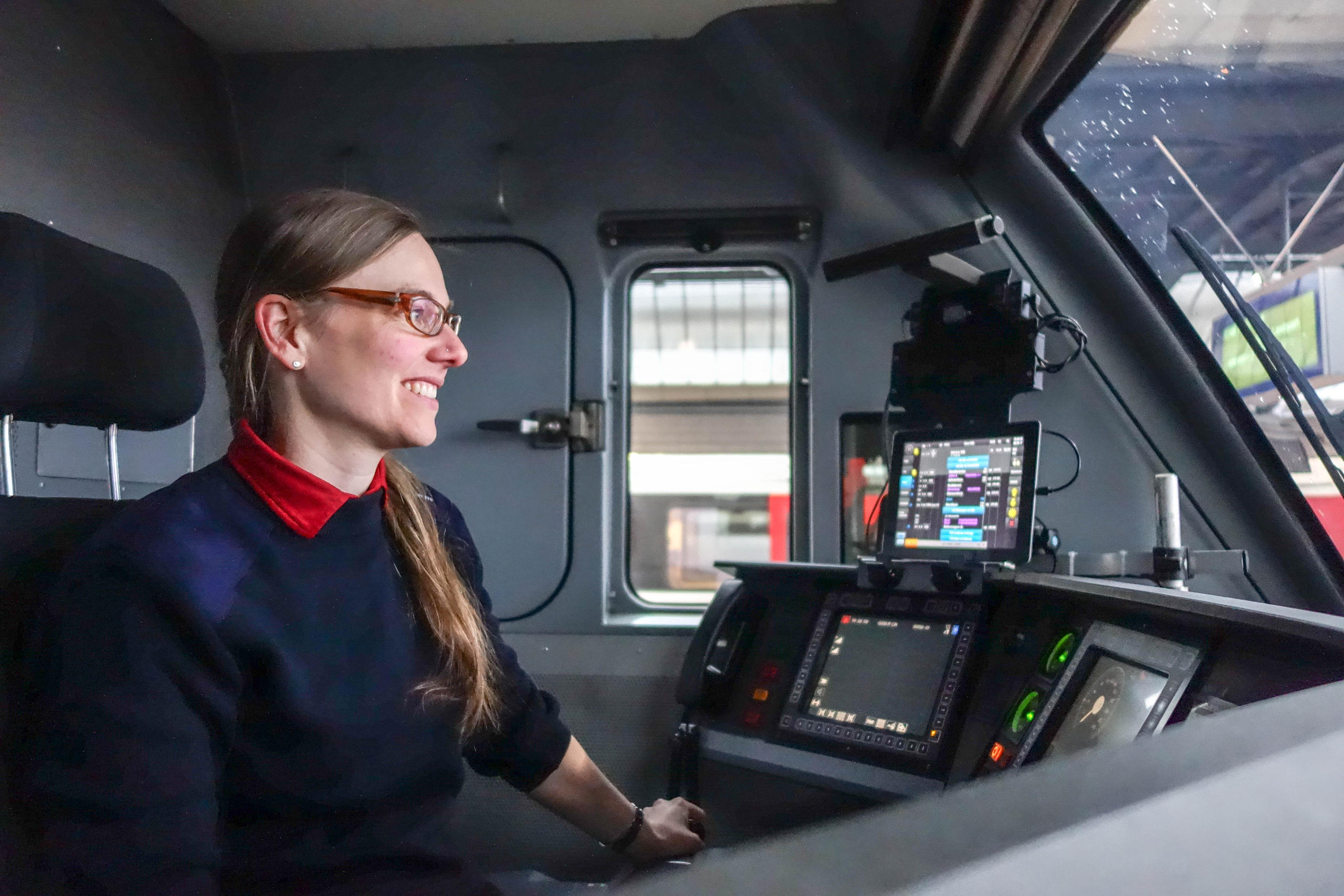
Train punctuality display aims to reduce energy consumption

Since April, Swiss train drivers have been told how many seconds ahead of or behind schedule they are at each main signal. The Federal Railways thereby wants to not only to improve punctuality but also to further reduce energy consumption.
This display enables train drivers to optimally adapt to the traffic situation, preventing energy-intensive acceleration, for example, the railways said in a statementExternal link on Thursday.
The new punctuality display complements measures already taken for a more stable timetable. For example, the optimised journey profile (vPRO) was introduced in 2020. This informs the driver of the optimal driving strategy, which is calculated about an hour before departure, said Matthias Tuchschmid, responsible for energy saving at the Federal Railways.
So instead of driving at the maximum possible speed on a section and consuming a lot of energy with high air resistance – only to slow down again and trundle along – an algorithm indicates the average speed to be driven for a punctual journey between two points.
The punctuality display, introduced in April, now shows the train crew on their tablets the deviation to the second from the calculated times of the optimal driving profile. The crews receive an update every 30 or 40 seconds and can react accordingly at an early stage, said Roland Aeschbacher, project manager for energy efficiency.

More
Swiss Federal Railways judges itself ‘very punctual’ in 2022
“The higher the punctuality values, the lower the absolute amount of electricity fed into the traction current system,” he explained. A train that is on time can run more energy efficiently, he added, and it also doesn’t block other trains, which can then also travel on the network without unnecessary braking and energy-intensive acceleration.
Individual measures
As part of its energy strategy, the Federal Railways has been systematically implementing measures in rolling stock, operations, technical equipment and buildings since 2012. So far, more than 250 individual measures have been initiated and implemented, it said.
Today, trains require around 4% less energy than in 2010, despite the fact that around 15% more trains are in operation. The Federal Railways wants to increase its energy efficiency by 30% by 2030.

More
Up front with a Swiss train driver

In compliance with the JTI standards
More: SWI swissinfo.ch certified by the Journalism Trust Initiative































You can find an overview of ongoing debates with our journalists here . Please join us!
If you want to start a conversation about a topic raised in this article or want to report factual errors, email us at english@swissinfo.ch.